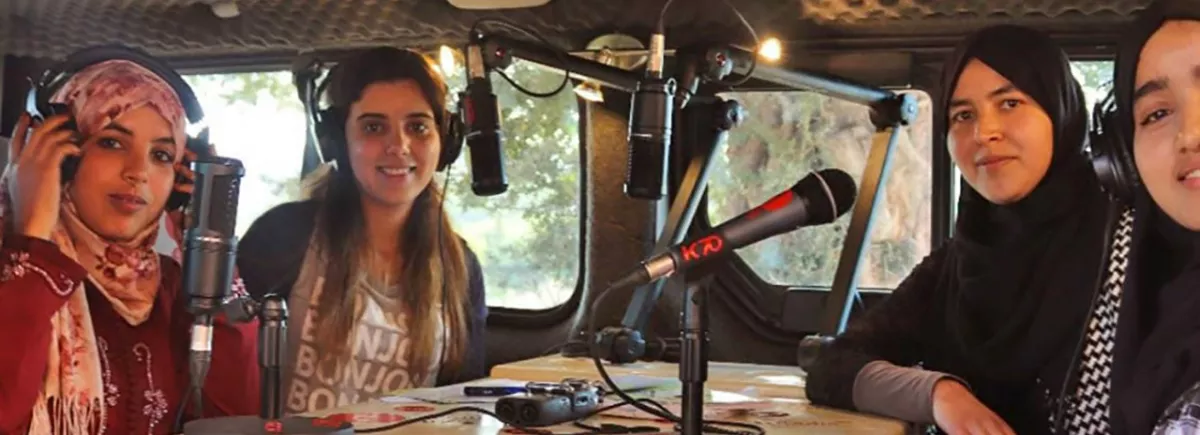
Echoes of women’s voices
Related project
Echoes of women’s voicesDespite legislation that is favourable towards the development of equality and protects women’s rights in Morocco, discrimination and violations of these rights still continue. In rural regions, less than one third of young women have been to school and more than half are illiterate.
The Echoes of Women’s Voices project encourages the participation of young rural Moroccan women in the Marrakesh-Safi region, in order to give them a voice, to bring to light their own vision of society and to let them express their plans and aspirations.
In 2019, a minivan was equipped with a radio studio and a pair of 1000-watt solar panels. The teams from the AIC (Association Initiatives Citoyennes – Citizen Initiatives Association), which is behind the project, travelled more than 20,000 kilometres over nine months and met with over 500 men and women.
They gathered together their stories into two programmes: Timgharine (which means “women” in Amazigh), which touched on their needs, problems, requirements and expectations, and Moubadarat-Nissaiya which means “female initiatives” in Arabic), which highlighted their initiatives and plans.
I am moved by this experience, which was at first a dream. Today, I am seeing it carried out in front of me, with all these young people, and I am enormously touched by that. I hope that this will help to strengthen the rights of women and ensure that their voices are heard in the region.
Yassine Aabbar, president of the AIC
Discussion groups in eight provinces
Members of the AIC and contributors also benefited from training sessions on social media, media production techniques and advocacy techniques.
For its part, FMAS (Forum des Alternatives Maroc – Forum for Alternatives in Morocco), another project partner, commissioned Regiminis to carry out an assessment of the obstacles preventing equal access to rights in the Marrakesh-Safi region. The assessment, carried out in October 2019, is based on field work involving eight discussion groups with representatives of civil society and stakeholders working for gender equality.
These meetings were held in eight provinces or prefectures within the region. 199 people were interviewed (men, women, female leaders, elected officials and executives). In all categories, changing people’s attitudes is the main pathway towards greater equality.


